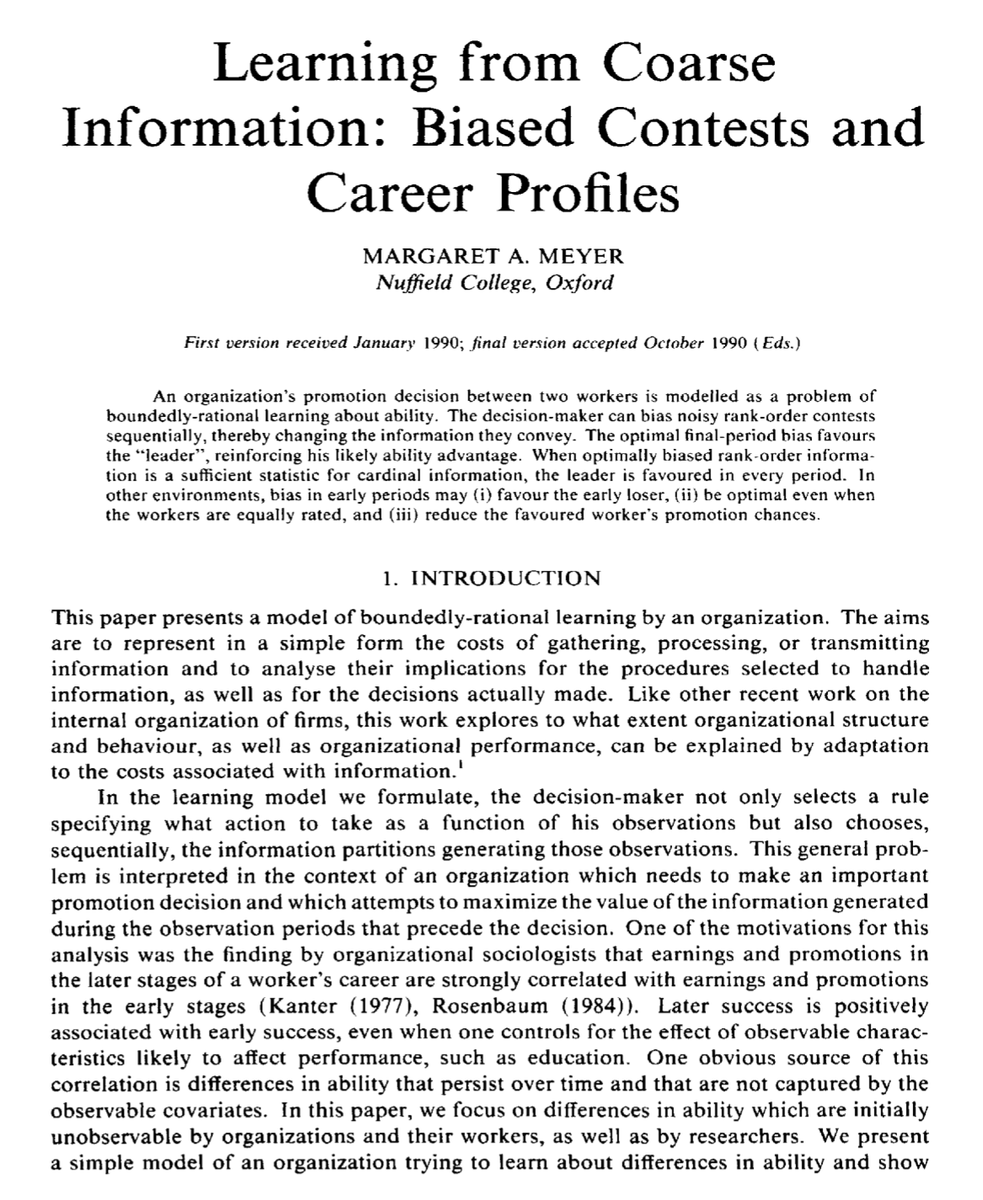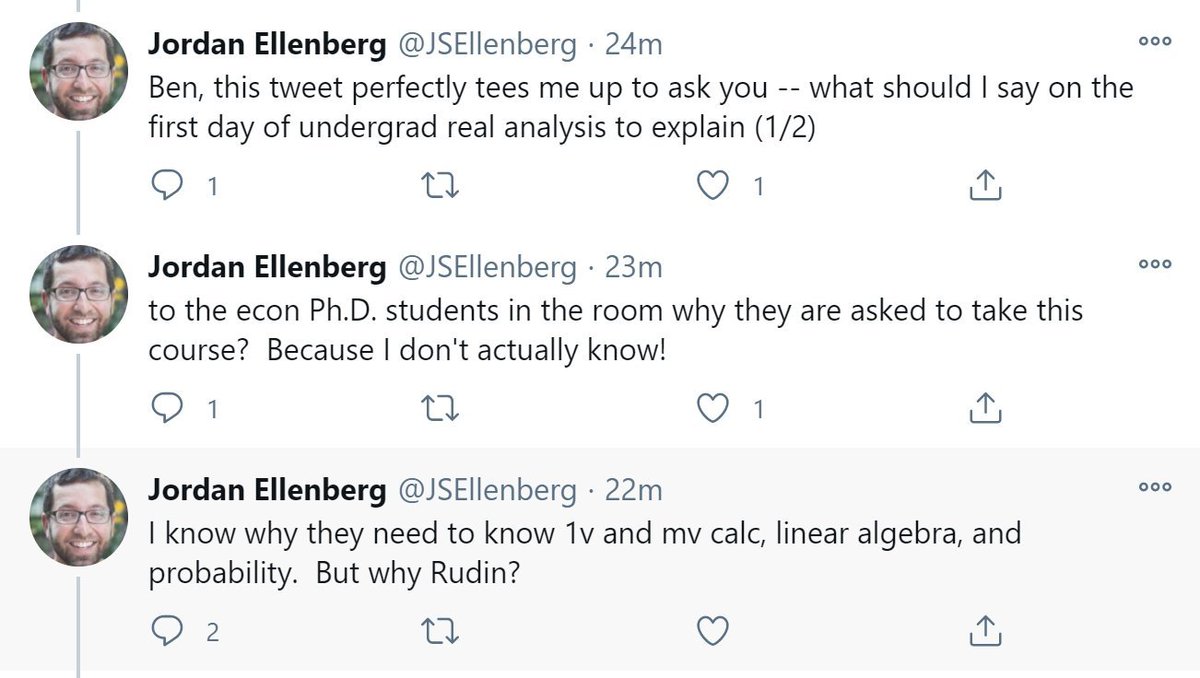
I've been playing around with a virtual talk format that's different from traditional slides, which deals with my biggest complaint about slides: lack of persistence of information.
Almost always, I want to see "setup" again during the first result/example, but it's gone.
1/
Almost always, I want to see "setup" again during the first result/example, but it's gone.
1/

In the format here, each panel is basically a slide, and I reveal these panels one by one.
That might be too small on a projector screen. But when everyone is in front of a monitor anyway, this seems to be better for giving the "lookback opportunities" I would want.
2/
That might be too small on a projector screen. But when everyone is in front of a monitor anyway, this seems to be better for giving the "lookback opportunities" I would want.
2/
Overall, I've never learned/understood better than during college math classes where professors slowly filled up six nice sliding boards.
In an ideal world, we could have this but with prepared content.
Probably not happening soon, but virtual talks allow an approximation!
3/3
In an ideal world, we could have this but with prepared content.
Probably not happening soon, but virtual talks allow an approximation!
3/3
PS/ I think there is a LOT of denial about how unsuccessful the traditional econ slide format is at getting information across. Speakers rely on way more memory than there is.
There were some more questions about this so I added a bit to it. First, here's how this slide looked presented. (Time is not to scale.)
1/
1/
I used PowerPoint. Its equation editor produces reasonably civilized output in presenter view, though it doesn't do TeX natively (I'm told Keynote does!)
Nothing fancy: used shapes and text to make a basic panel, and then cloned and modified it for consistency of formatting.
2/
Nothing fancy: used shapes and text to make a basic panel, and then cloned and modified it for consistency of formatting.
2/

(For what it's worth, basic TeX commands do work.)
A tool that made this much less painful than it might have been is Grouping and the Selection pane (Alt+F10). It lets you select exactly what you want, control what's in front of what, and show/hide entire blocks of content.
3/
A tool that made this much less painful than it might have been is Grouping and the Selection pane (Alt+F10). It lets you select exactly what you want, control what's in front of what, and show/hide entire blocks of content.
3/

That's it! Here's the source if anyone wants to play around with it.
dropbox.com/s/2n71df950mpd…
4/4
dropbox.com/s/2n71df950mpd…
4/4
• • •
Missing some Tweet in this thread? You can try to
force a refresh










